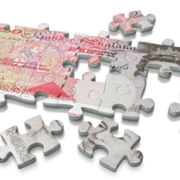So you are getting collection calls? You’re desk is full of unpaid bills. You dread answering the phone. You are having trouble sleeping at night because you are worrying about a bunch of bills. You feel depressed.
Does any of this sound familiar? If it does then, maybe this article can help you. First of all you need to realize that you are not the only one. You are not alone. Then you need to know that there can be light at the end of the tunnel.
This article is not meant to be legal advice. It is to let you know your rights under the law. Perhaps it will steer you in the right direction. As this site is targeted for residents of Jacksonville, I will only deal with Florida statutes. I will explain your rights under the Fair Debt Collection Practices Act (FDCPA). This is legislation that was enacted in 1977 to stop abusive collection practices. I quote the Florida State Attorney General How to Protect Yourself: Debt CollectionsConsumer Source: The Florida Attorney General’s Office
You may have questions relating to debt collections if you are contacted by a “debt collector,” someone who regularly tries to collect debts owed to others. A debt collector may contact you if you are behind in your payments to a creditor on a personal, family or household debt, or if an error has been made in your account. A debt collector may contact you in person, by mail, telephone, telegram, or fax. However, a collector may not communicate with you or your family with such frequency as can reasonably be expected to be harassing. A debt collector may not contact you at work if the collector knows your employer disapproves. A collector may not contact you at unreasonable times or places, such as before 8 a.m. or after 9 p.m., unless you agree.
A debt collector is required to send you a written notice within five days after you are first contacted, telling you the amount of money you owe. The notice must also specify the name of the creditor to whom you owe the money, and what action to take if you believe you do not owe the money. You may stop a collector from contacting you by writing a letter to the agency telling them to stop. Once the agency receives your letter, they may not contact you again except to say there will be no further contact, or to notify you if the debt collector or the creditor intends to take some specific action. If you do not believe you owe the debt, you may write to the collection agency within 30 days after you are first contacted saying you don’t owe the money. The agency may not contact you after that unless you are sent proof of the debt, such as a copy of the bill.
A debt collector may not harass or abuse any person. For instance, a collector may not use threats of violence against the person, property or reputation, use obscene or profane language, advertise the debt, or A debt collector may not use false statements, such as: falsely implying that they are attorneys, that you have committed a crime, or that they operate or work for a credit bureau or misrepresenting the amount of your debt, the involvement of an attorney in collecting a debt, or indicating that papers sent to you are legal forms when they are not. Debt collectors may not tell you that you will be arrested if you do not pay, that they will seize, garnish, attach, or sell your property or wages, unless the collection agency or creditor intends to do so and has a legal right to do so, or that a lawsuit will be filed against you, when they have no legal right to file or do not intend to file such a suit.
If you have a question about whether the collection agency which has contacted you is properly registered, you may file a complaint either with the Attorney General’s office or the Federal Trade Commission, Correspondence Branch, Washington, D.C. 20580. You may file suit against the collection agency for violating state andor federal law. If you prevail, you may be awarded your actual damages, attorney’s fees and costs. The protection he mentions is from the FDCPA. The FDCPA is not a Florida law. It is a federal law. The law provides for stiff penalties for debt collectors (i.e. the actual collector or the company or agency for which heshe works). This means that you do not have to put up with collection harassment or being insulted or threatened with such things as going to jail, criminal charges, seizing you wages, calling your employer or friends and family to tell them about the debt. You do not deserve this type of treatment and should not stand for it. They may not misrepresent themselves. They can’t tell you they are from the Sheriff’s Office, “warrants processing”, or an attorney’s office (unless they do work for an attorney). Most of the abusive practices are done over the phone. Letters and correspondence will usually comply with the law.
If you feel that a collector(s) are being abusive you have several options : 1) contact the supervisor or owner of the agency. The one on the phone is usually an hourly employee. Higher ups normally want their people to comply with the law as to prevent costly lawsuits against them.
2) You may also notify them that they are not to call you again. This should be done in writing by certified mail with return receipt so that you have proof that you did advise them not to call you. This is a no call request. You should only do this after repeated incidents. Why do I say this? You may get one call where the collector is rude. The next one you get may not be.
Having done collections for many years, I often had calls where the person was angry from the last person they had spoken to. But by working with them I was able to come to a mutually agreeable solution. So because you had one bad experience doesn’t mean they are all like that.
Many collectors strive to stay within the law. But you do have the right to do this under the law.
3) Contact the Federal Trade Commission (http:www.ftc.gov).
4) Consult an attorney. The bottom line is that you don’t have to take abusive practices. Bear in mind also that they can’t harass you. Calling you one time every 3-7 days isn’t harassment. Calling you repeatedly on the same day after they have done spoke to you may be considered collection harassment. Calling before 8 am and after 9pm is against the FDCPA. An attorney can best determine if it is.
Perhaps the problem isn’t that you are being harassed or abused. You are behind and don’t know what to do. You know you owe the debt but don’t have the money to resolve it right now. Lets look at your options. Debt is either of 2 kinds. Secured or unsecured. A secured debt means that there is an asset that secures it, such as a house or a car. Unsecured is normally a credit card or similar account.
With a secured debt the creditor has the right to take possession of the secured asset if you do not pay. You may also be liable for the balance of what was owed less what the creditor sold it for. With an unsecured debt the debt continues going past due until it “charges off”. This means the creditor has to remove it from the books as an asset. This doesn’t mean they just “write it off” and the debt goes away. Typically they will either send it to a collection agency to try to recover or they may send it to a collection attorney to take action. This is up to the creditor to decide which action they will take.
Now less review your options.
1)Keep the lines of communication open between you and your creditor. They want to work with you to resolve it. It does neither you nor them any good if they have to repot your car or charge off your account. If you have run into problems, let them know.
2) Don’t promise something that you can’t do. If you can’t commit to an amount then don’t say you will. Creditors normally keep track of the number of times you break your promises and it some case it may influence their actions later on.
3) Most secured creditors will allow you to skip one or two payments and put it on the back of the loan. Each one has different rules for this.
4) Most unsecured creditors have programs to work with debtors. The most prevalent one is a “reage” or “cure” program. For instance, your monthly payment is £50. You are 4 months behind. You don’t have the money to catch it up. But you could make that £50 a month payment now. I have seen this scenario many times in my years as a collector. The statement is wanting £200 and they can only do £50. With a “reage” or “cure” program they would just have to resume making the £50 a month and after 3 months the account is current. Which means it will report to the credit bureau as current and it will not be getting late fees since it isn’t considered late any more. Call your creditor and ask about a “reage” program. They may call it something else.
5) Credit Card companies have a minimum payment, which is usually something like 2.5% of the balance plus any overlimit amount. I have seen many people get behind and have their credit affected by it because of this. View the example Credit limit balance Payment % Minimum MIN+ ovrlmt 1000 1100 3.0 £33 £133 In this example the payment being requested by the credit card company is £133. The person may get this and be unable to pay the £133. Instead they pay nothing. Hence their account goes past due.
The next statement the the amount is even greater since there was no payment the month before and it is even more overlimit because of finance charges, late fees and overlimit fees. However if the person had paid the £33(3% of balance) the account wouldn’t have went past due. It would still have gotten an overlimit fee but no late fees since it is still current on the payments. Check your cardholder agreement to determine the minimum payment percentage.
I realize this has been lengthy. I hope it has been of some help. Check back again for the next article in this series. If you know someone this can help, please refer them to the site.



